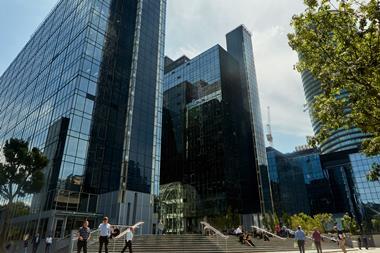With government guidance continuing to require everyone who can work effectively from home to do so, some office buildings are consuming energy at a rate similar to weekend levels.

But will the significant energy savings made have a positive impact on occupiers’ bottom lines?
The answer will depend on the nature of agreements made with outsourced facilities managers (FM) paid to manage the building, which includes regulating the electricity and heating. However, there are many businesses that do not stipulate in their contracts with these third-party providers how the financial savings derived from lower energy consumption should be attributed.
The reality is that you cannot just turn buildings off. There is a clear need for assets to be professionally managed even when office occupancy is low, so that heating and cooling systems are operating sufficiently to prevent water stagnation, which can lead to legionella for example.
Some corporate estate and property teams opt for a simple system where any energy cost savings are split 50:50 between client and contractor. Other options could be an incentivised energy reduction programme with clear targets and an agreed percentage shared with the providers.

Businesses need to consider contracts in the context of their building energy in a post-Covid world. There is the potential that energy use in buildings will significantly increase in the near future due to increased ventilation.
Energy reduction and associated annual cost savings need to be independently verified. The aim should be to spot contractual breaches and so-called ‘savings’, which do not account for unrelated changes such as a pandemic or events like a power cut.
In the age of Covid-19, all occupiers need a clear understanding of energy use, and whether and how the financial savings will be correctly and fairly attributed.
Ian Jeffries is managing director at EEVS






























No comments yet